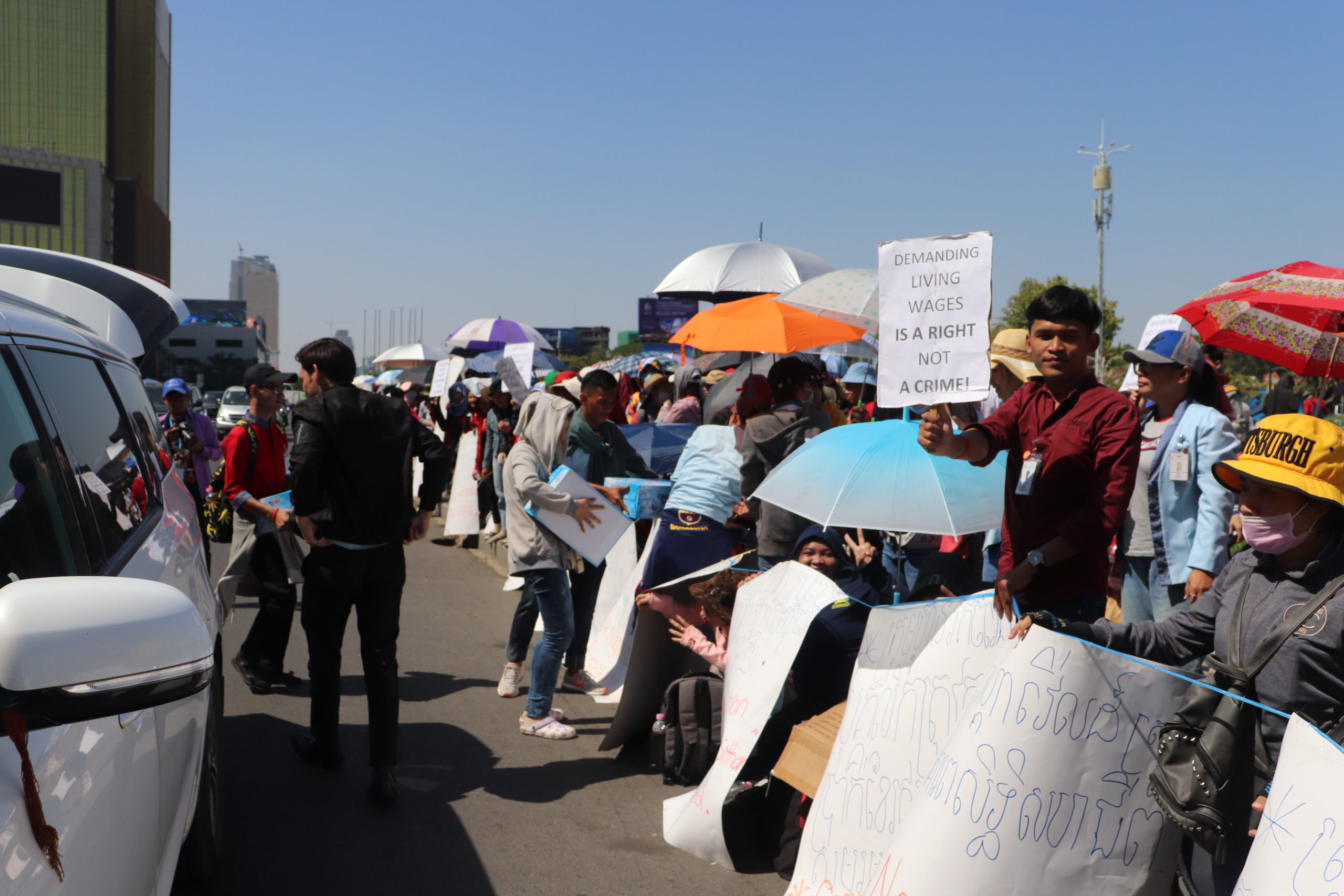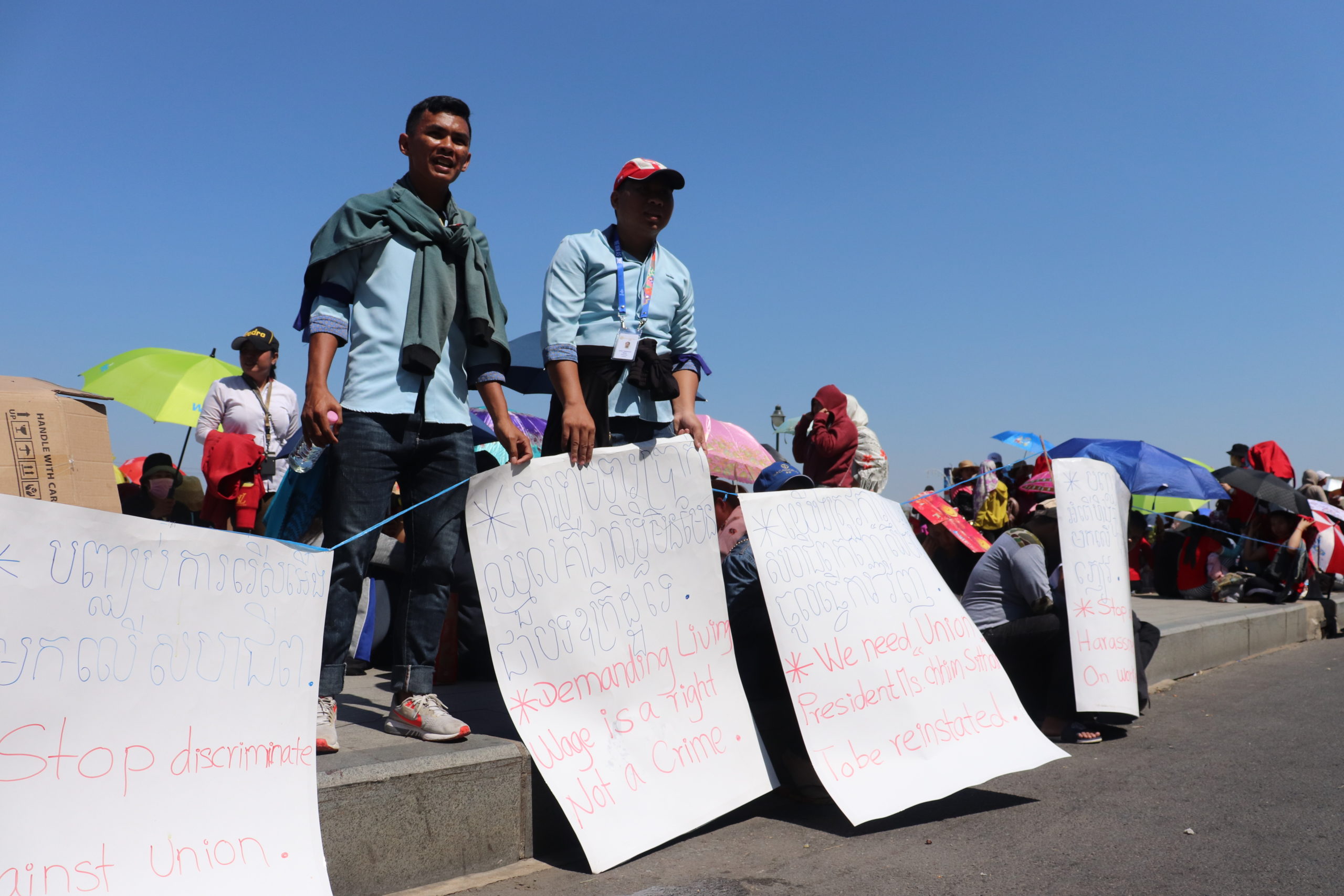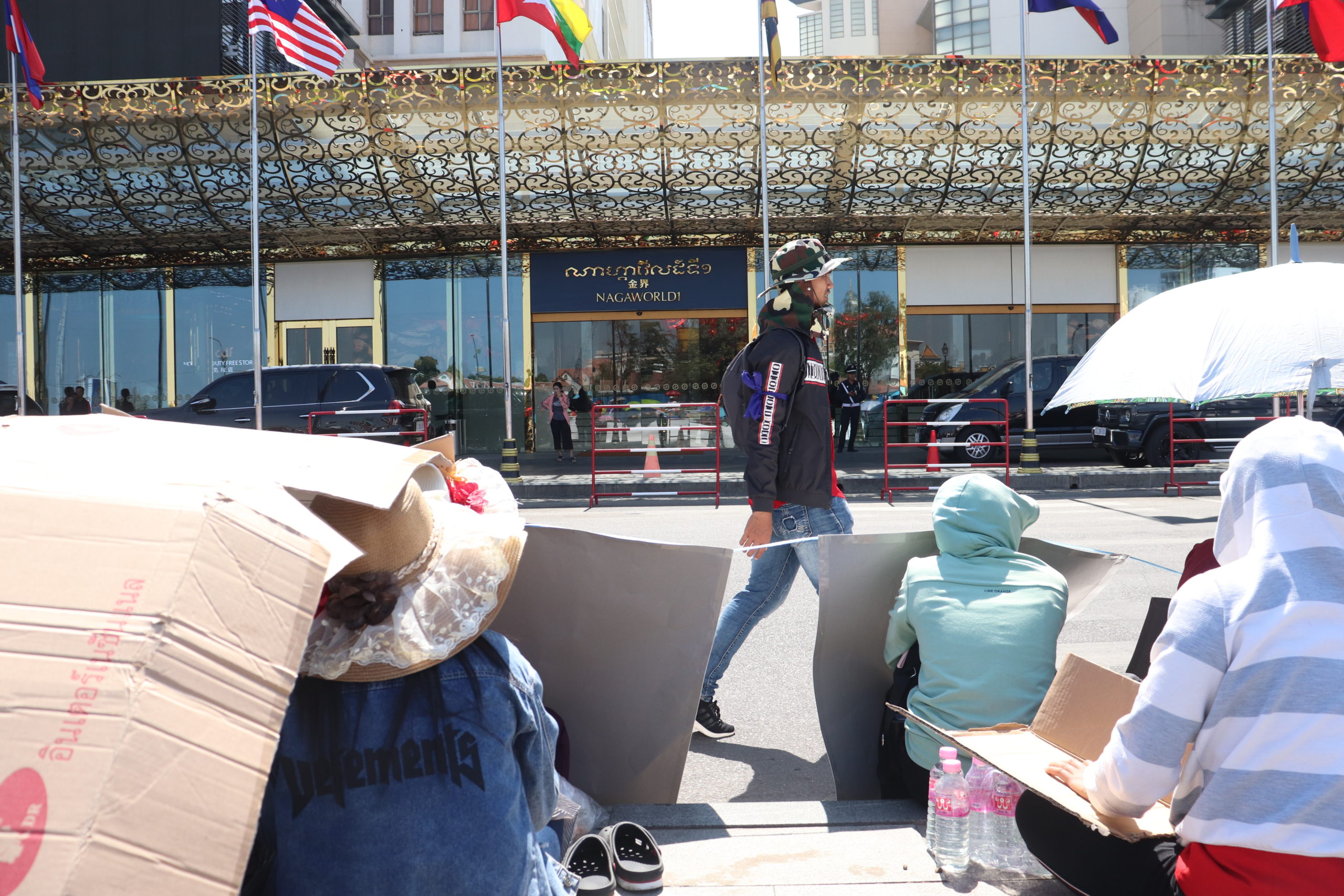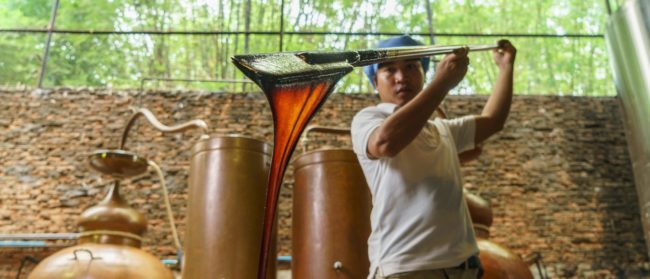Usually abuzz with electronic lights, flipping cards and human voices, the tables at the gleaming NagaWorld casino resorts in Phnom Penh have finally gone silent.
The towering casino and hotel complexes near the city’s Diamond Island addition closed 1 April by order of Prime Minister Hun Sen as a preventive measure in the Cambodian fight against Covid-19.
Now, without the stream of mostly Chinese gamblers that made the sole casino operator in the capital by some measures one the largest gaming operations in Southeast Asia, about 9,000 employees that make their living between the two neighbouring NagaWorld facilities are left to wonder what their fortunes will hold.
Chhim Sithar is vested in a winning draw, both as a casino pit boss and as the head of the NagaWorld employees’ union. In late September, casino management suspended Sithar amidst what she describes as a campaign to fight for across-the-board employee pay raises. After nearly four contentious months that culminated in a two-day January protest outside the original NagaWorld casino, she was reinstated to her position.
Now, almost a month after the gaming facility was temporarily shuttered, Sithar says the disruption has taken a toll on her organisation’s approximately 4,000 members.
“They have been struggling with basic daily expenses,” she told the Globe. “I have got a lot of concern from my members, it’s been difficult for them.”
NagaCorp, the holding company for the two casino resorts in Phnom Penh, opened its first in 2003 and enjoys exclusive licensing to operate as a casino in Phnom Penh. That positioning helped ensure the success of the business, which added the Naga 2 extension in 2017.
Last year, NagaCorp announced Naga 3, a massive third installment in the Phnom Penh hotel-casino kingdom that could cost upwards of $3.5 billion. The hotel-casino complex would add 4,720 hotel rooms and a 12-storey entertainment area.
NagaCorp is publicly traded on the Hong Kong Stock Exchange and reported for 2019 gross gaming revenues of $1.7 billion, an increase of 20% from the year prior. NagaCorp also reported $521.3 million in net profit for 2019 and a hefty $46.6 billion in VIP rollings, a gaming industry statistic that suggests the volume of money in play on the floor.
This week, as she looked ahead to International Labour Day on May 1 – a public holiday in Cambodia – Sithar said it wasn’t fair for NagaWorld workers to struggle while their company made so much money. She also believed the ongoing viral pandemic should be considered an occupational disease.
“For most countries in Southeast Asia, for us in Cambodia, the government has announced the disease is closing down casinos, karaoke and some restaurants, but there’s no policy or law that talks about employee responsibility to those who have lost their jobs, workers who are poor or live on their own without protection,” she said. “That’s our message on May Day: Employers and government have responsibilities to support workers during this crisis.”
NagaWorld representatives did not respond to a request for comment.
Right now, both union and non-union workers at NagaWorld facilities are receiving 50% of their salary while the casinos are closed to visitors. Traffic from Chinese customers had already fallen sharply due to the Covid-19 outbreak even before the official shutdown notice, but the NagaWorld hotels are still hosting some guests.
Sithar said 20-30% of the hotel and security staff are considered essential and still go into NagaWorld facilities every day. That includes a labour force made up of guards, housekeepers, culinary and maintenance staff whose working days are limited to just 13 per month.

“The workers, some are doing well with 50% of basic salary, but majority of them have problems with financials,” Sithar said. “They have to pay to the bank and microfinance and also some people might have bought a house and it’s not enough to pay.”
Yem Borey, a NagaWorld slot machine supervisor, agreed with Sithar’s assessment of life under the Covid-19 closure.
“Our living is very difficult,” Borey said in a message, adding that it was hard to make ends meet while paying off a bank loan. “Some of my colleagues are now becoming an online seller, they live on Facebook, especially the girls.”
Though he said he was proud of his colleagues for finding ways to preserve their livelihood, he’s one of many casino workers now eagerly awaiting the word from Hun Sen to reopen the doors to gamblers.
Borey was also among the crowd of thousands of NagaWorld union workers who gathered to chant, sing and occupy the space for the January demonstration to reinstate Sithar. Those who gathered under the beating sun then held signs calling for the union chief’s return, along with other agenda items related to pay and workplace safety.
To add more about our concerns, union-busting might happen … Active union members might not be called back to work on the basis of business being low, even though they are reopened
Chhim Sithar
Now, a few months later but a world apart, the union is working toward higher pay through continued negotiations – and a possible promise of working through upcoming public holidays to repay NagaWorld for support during the closure.
That’s one possibility on the table in a union proposal for workers to receive 100% of their salary for April, 70% for May and, if the casino remains closed, a 50% wage in June.
“[We] are always having debate, sometimes issues together about public holiday because the company gives such little leave for workers,” she said. “But if the proposal is accepted, OK, we will work during public holidays.”
‘Union-busting might happen’
Besides her regular communications with the union membership and casino management, Sithar says she’s been checking in with other labour representatives around Cambodia and the wider Asia Pacific to compare notes on worker conditions during the crisis.
Sithar said these organisers are also closely watching how employers move forward from pandemic-based closures.
“To add more about our concerns, union-busting might happen,” she cautioned. “Active union members might not be called back to work on the basis of business being low, even though they are reopened.”
She pointed to the reported mass firing of union members at the Myan Mode garment factory in Yangon, Myanmar, as an example of what she meant.
“I’m sure those employers will try to do something, will not miss this kind of good opportunity,” Sithar said.
Workers’ rights and salary issues have always been some of the top priorities of the NagaWorld union organisers, but workplace safety also ranks high.

Many of the protesters who demonstrated in January came with signs bearing slogans to that effect. One protestor who identified herself as a card dealer, said that harassment from players often went unchecked by security staff on the floor.
“They get angry sometimes when they lose – and they always blame us,” she said.
Union members are pushing for a comprehensive set of guidelines to improve safety for NagaWorld employees, including a stronger policy to deal with aggressive customers. But Sithar charges that NagaWorld has moved slowly on this front and, like many casinos, is especially reluctant to admonish high rollers when they misbehave.
The union president said gamblers on a losing streak have in the past upended ashtrays, berated dealers to the point of tears, and thrown hot beverages or bottles of water at them.
“Some who are police, or work in the government, they even threaten the dealers that they will kill them outside if they see them,” Sithar said.
Even more mundane threats, like the constant plumes of second-hand smoke from cigarettes, have been hard to address for casino staff. Multiple gaming workers at the January protest complained that they might get a faceful of smoke from gamers at any point, with no options to get away.
Sophana, a food and beverage worker who went to the January protest to help reinstate Sithar, said then, just months before Covid-19 would upend his workplace, that employees needed the union to promote their interests at work.
While his main long-term goal was to see higher wages for NagaWorld staff, he also thought it was important to fight for a change in company attitudes toward employees.
“Sometimes the company has the idea that Phnom Penh has only one casino and if you don’t like it, you can go resign,” he said. “I don’t want the company to think like that, I need them to think about the staff, because the staff find the money for them.”


